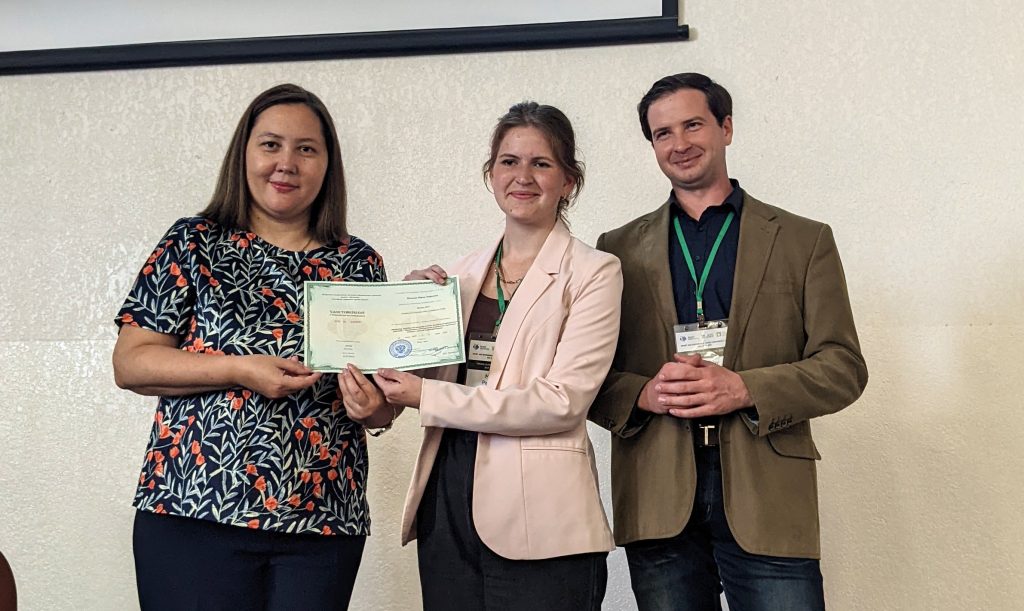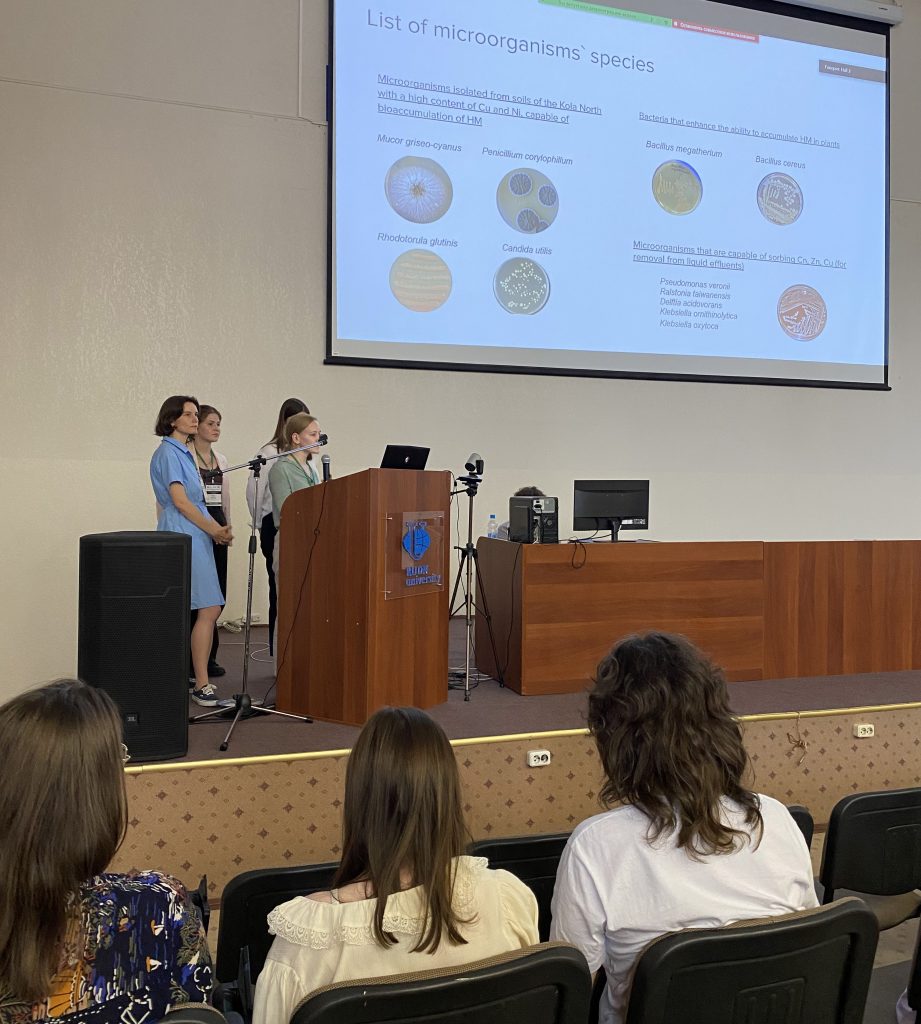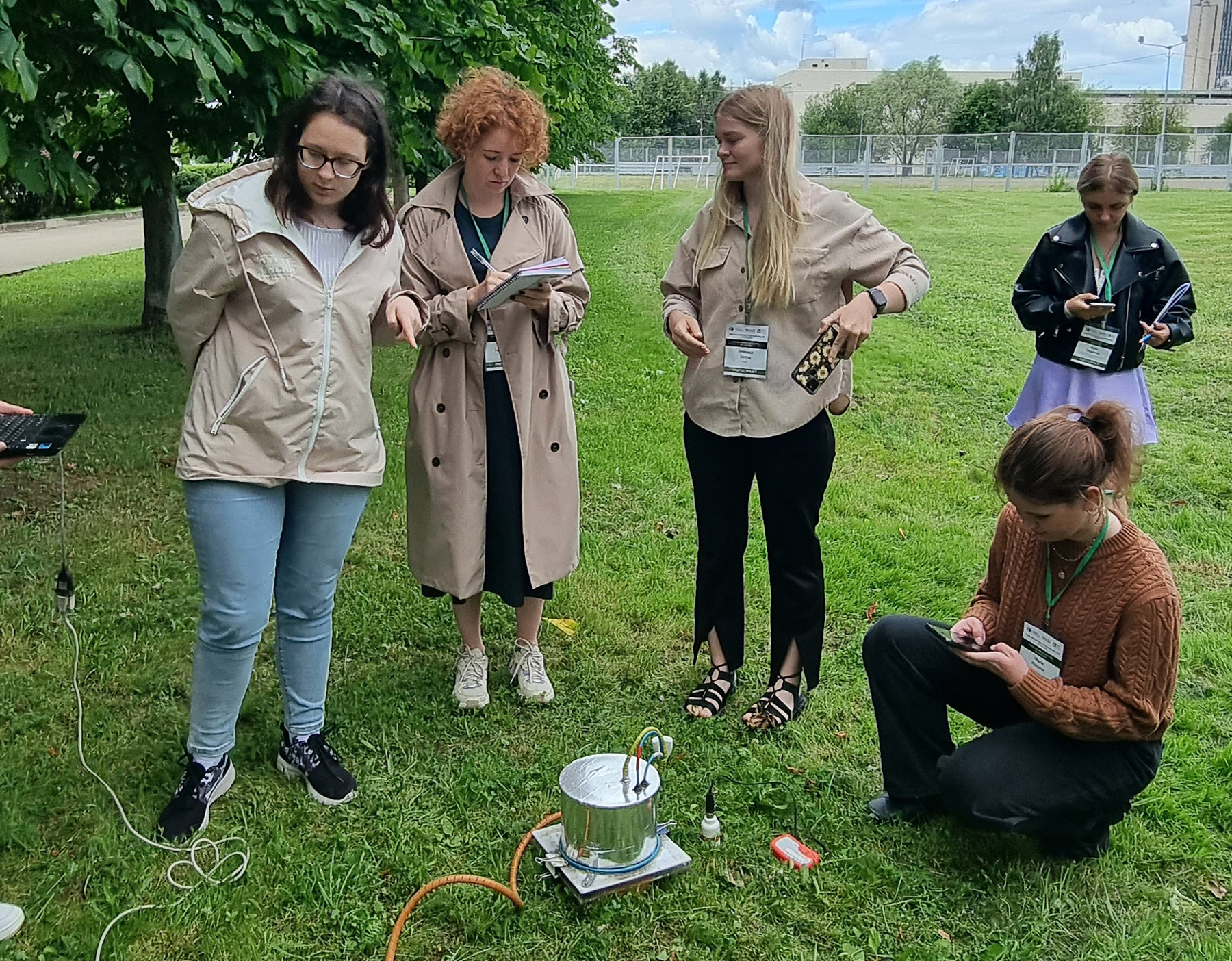In July 18—22, 2022, the 6th International Summer School 3MUGIS (Monitoring, Modeling and Managing Urban Soils and Green Infrastructure) was held within the Department of Landscape Design and Sustainable Ecosystems of the RUDN University. The school was organized with the support of the Russian Science Foundation and under the umbrella of the International Union of Soil Scientists and the Institute of Urban Soils of New York in collaboration with universities, scientific organizations and research groups from around the world. The partners of the school were Brooklyn College (USA), Kola Science Center of the Russian Academy of Sciences, Southern Federal University and many others. All the organizers and partners of 3MUGIS are united by the desire to exchange knowledge, ideas and experience at the international level.
The main goal of the summer school is to evolve collaboration between scientists from all over the world, as well as to teach young researchers the skills of monitoring, modeling and mapping urban soils and green infrastructure in various climatic conditions and in a man-made environment. During the training, participants receive up-to-date knowledge about the ecology and biogeochemistry of urban soils and plants, get acquainted with technical innovations in monitoring and modeling of urban soils and green infrastructure, and also study the important features of a changing urban climate, socioecological phenomena of urban blue-green infrastructure.

The traditional format of the summer school includes a large-scale field tour across the European part of Russia from the Barents to the Black Sea, during which participants study the zonal diversity of soils and landscapes and evaluate the consequences of anthropogenic impact on the ecosystem. However, this year, summer school was held in hybrid mode. Despite the limited format and shorter duration of the school, the organizers managed to create a multifunctional platform for conducting five days of interesting lectures, seminars, workshops, live broadcasts and group projects.
Organizing the 3MUGIS school we strive to combine expertise of environmental, soil and plant sciences with the skills of landscape design, analysis and planning with focus on specific conditions of urban ecosystems and through a range of bioclimatic conditions and region-specific environmental problems — Maria Korneykova, Deputy Director for Research of the Agrarian and Technological Institute of RUDN University.
More than dozen students and young scientists from Russia took part in the summer school. As for speakers, in addition to scientists from the RUDN University, they were more than 15 credible soil scientists, climatologists, biologists from France, Germany, Italy, Australia and the USA.
The summer school program combined both theoretical and practical blocks, including lectures, workshops and practical tasks, as well as the preparation and defense of group projects. During the summer school, 12 lectures and 3 workshops were held, where students learned about new approaches in eco-monitoring and modeling of urban ecosystems, studied the biochemistry of urban soils and plantings, examined the issues of ecosystem services and urban climate, and also learned about an architecture perspective of urban blue-green infrastructure planning.
 The final day of the summer school was dedicated to defending the group projects that students had been working on from the start of the program. Independent student projects are an important part of the 3MUGIS program, as it allows students to apply all the knowledge and skills acquired during the school to complex and interesting cases. Thus, three mixed teams presented projects for (1) an enhancement in ecosystem services by remediation of the subarctic industrial barren (supervised by Dr. Marina Slukovskaya, Kola Science Center of the Russian Academy of Sciences); (2) redesign and reconstruction of the RUDN University territory into a smart and sustainable campus (supervised by Valentina Grigorieva, RUDN University) and (3) Planning urban green infrastructures in dry steppe conditions: establishing an Open Green Lab in Ostrovsky park, Rostov-on-Don (supervised by prof. Sergey Gorbov, Southern Federal University). All participants, despite their different experience and approach to work, managed to exchange ideas, try teamwork format, and, most importantly, put the knowledge gained at the summer school into practice.
The final day of the summer school was dedicated to defending the group projects that students had been working on from the start of the program. Independent student projects are an important part of the 3MUGIS program, as it allows students to apply all the knowledge and skills acquired during the school to complex and interesting cases. Thus, three mixed teams presented projects for (1) an enhancement in ecosystem services by remediation of the subarctic industrial barren (supervised by Dr. Marina Slukovskaya, Kola Science Center of the Russian Academy of Sciences); (2) redesign and reconstruction of the RUDN University territory into a smart and sustainable campus (supervised by Valentina Grigorieva, RUDN University) and (3) Planning urban green infrastructures in dry steppe conditions: establishing an Open Green Lab in Ostrovsky park, Rostov-on-Don (supervised by prof. Sergey Gorbov, Southern Federal University). All participants, despite their different experience and approach to work, managed to exchange ideas, try teamwork format, and, most importantly, put the knowledge gained at the summer school into practice.
We are very happy with the way our school went and how we managed to maintain a research spirit by bringing together a team of skilled experts and ambitious participants from all over the world, with unique experience and unconventional views on modern urban development. And we are confident that thanks to 3MUGIS, a new generation of young scientists will be able to take a new step in research, using the skills and knowledge gained in our school, said Elvira Dovletyarova, Director of the Agrarian and Technological Institute of RUDN University during the closing ceremony of the summer school.

